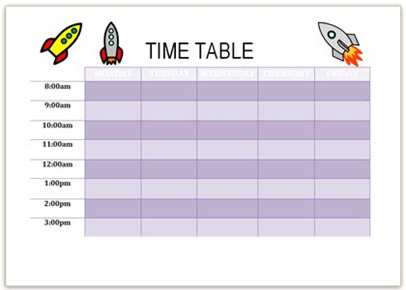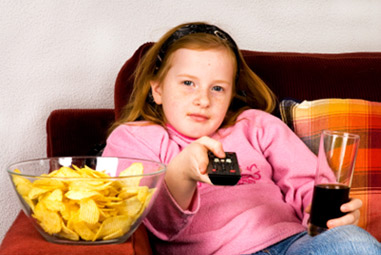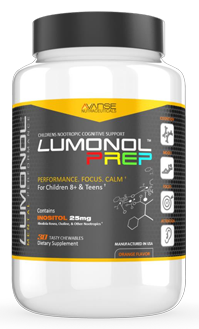
“Parenting is the easiest thing in the world to have an opinion about, but the hardest thing in the world to do.” – Matt Walsh
A big hello to all the moms and dads out there reading this right now! Welcome to our Parents Vs. Kids edition, where we will discuss the common problems that you may face with your child and how to regain that balanced and happy atmosphere at home again.
As Mr. Walsh has explained quite bluntly in his quote up there, parenting is no easy task. Besides, being a parent is like working 15 different jobs at once – you have to be a cook, a teacher, a handyman, a doctor, a motivational speaker, a friend, a human alarm clock, a driver, etc. So before we go any further, we want you to take a deep breath and relax because no matter what you think, you’ve done a great job so far. Go easy on yourself.
Now let’s address the problem, or rather the warfare, you’ve been having with your child. You keep getting phone calls and/or e-mails from the school complaining about your child’s ‘lack of focus’ and ‘inappropriate behavior’. At home your child has constant mood swings and refuses to obey by any of the rules you’ve established. Your child demands for attention at unseemly times and every night is a struggle to get them into bed. You’ve tried to have a friendly chat with your child but he/she seems unmotivated, constantly bored and with scattered thoughts.
The first step you should take is to understand that these are very common problems. Children in general and specifically those with ADD/ADHD struggle to keep focused, are easily distracted, show impulsive behavior and have a hard time following through with tasks and projects. The good news is that there are definitely ways to tackle these problems and essentially improve the situation.
If you’ve been searching up different ways to help your child accomplish a calmer and more positive attitude, look no further. We’ve done all the necessary research and we’re here to outline 5 different solutions that you should take under consideration to turn both you and your child’s frowns upside down.
5. Always Stay Positive

One of the biggest issues that cause misbehavior is exposure to negativity. In no way are we blaming you for being the source of that negativity, but try to understand that no matter what, your child may be exposed to pessimistic queues in his/her environment.
For instance, the teacher at school might be really bad at keeping your child calm and happy. The kids in your child’s class may be bullies or show disrespectful behavior.
To help reduce the damage of all this negativity, you should as a parent keep in mind that staying positive is always the way to go. Seriously, no matter how bad things get, always see the glass as half full.
So how can we achieve that? Here are a few simple tips…
- Focus on the do’s rather than the don’ts.
This is pretty simple – instead of telling your child what they shouldn’t do, tell them what you want them to do. For instance, rather than telling your child to stop running around the mall, tell them to hold your hand and stay by your side. Following a positive demand (do) rather than a negative one (don’t) brings a higher sense of accomplishment. - Say more positive things.
Let’s be real here – you’re only human so once in a while you’re gonna need to complain or whine about a few things. That’s okay, but try to limit yourself from doing that when the child is around. For instance, don’t stress out or moan about the bills you have to pay in front of your kid. This spreads negative energy and makes your child think that it’s not a time to be happy. Additionally, try to share positive opinions with your child i.e. “This food is great”, “I loved that movie, it was so funny!” – this will teach your child to form cheerful thoughts and to be more confident. - Don’t always believe the rumor mill.
If you hear bad news about your child from the school or the neighbors, don’t always instantly believe it. The teacher at school, for instance, may be focusing on your child’s weaknesses i.e. lack of focus, instead of his/her strengths i.e. having lots of creative ideas, capable of being a leader. - Lifestyle changes to maintain a positive mood.
- Make exercise apart of both your schedulesRegular physical exercise directly benefits the brain. WebMD mentions that it does so by reducing anxiety, improving memory capacity, improving impulsive behavior and enhancing organization skills.1You can encourage your child to exercise more by signing him/her up to join a sports team at school. To further support this, you too should go for morning runs and/or join a yoga class.
- Never forget the importance of sleep
You’ve tried telling bedtime stories and reading with your child before bedtime but nothing seems to help the little rascal fall asleep. Well, keep in mind that every child is different. Maybe playing a calming soundtrack or setting up glow-in-the-dark stickers on the ceiling can induce calmness and sleepiness.2
Remember that if your child is above the age of 5, he/she should be getting 10-11 hours of sleep per night. Without a lack of sufficient sleep, your child is more likely to lack focus, get mood swings and show violent behavior. That’s because sleep deprivation leads to lowered growth hormone release, which impacts the brain by deteriorating memory and concentration.3
4. Keep Them Calm

The most important thing to do to ensure that your child is well-behaved is to keep them calm. A kid that is hyperactive is more likely to get distracted and cause trouble. But screaming at your child to stay still or be quiet doesn’t always work.
Keep in mind that just like adults, kids can struggle with anxiety too. Staying on top of homework schedules, sport activities and craving to be in the ‘it’ group can leave children unknowingly suffering from the symptoms of stress. So more often than not, the reason your child is badly behaved is because they’re stressed out and anxious. Particularly kids with ADD/ADHD, their minds are constantly swarming with different ideas and thoughts, making them lose concentration.
To help keep your child calm, you can start off by doing the following two things:
- Don’t stress out too much about the little things
If your child is fidgeting while doing homework or eating, don’t make it too much of a big deal. The important thing is that he/she gets through the meal or finishes the homework, so you shouldn’t scold them for moving around too much or biting their nails. - Practice negotiation
While rules are important, sometimes it’s better to create negotiations with your child. This can be done by giving rewarding; i.e. if your child agrees to finish their homework by 4 P.M. then he/she can have an extra hour of TV.
3. Secure A Structured Lifestyle

Teaching your child to schedule their days is one of the most effective ways to develop better organization skills. How can this be done?
- Create a timetable and advise your child to stick to it
(as shown on the picture above) - Set up posters that clearly outline how to get tasks should be done
i.e. How to clean up the room, how to do laundry (for teens), etc. - Give your child his quiet space
- Keep the house organized
While you should enforce organization and discipline in the house, remember that this does not always equal to punishment. Remember that children respond better to positive reward rather than negative punishment. A Dutch study shows that giving kids positive feedback leads to better performance and improved learning skills.5 When giving rewards, it’s better to keep them instantaneous or in the short-term rather than future-oriented. This would better capture your child’s attention.
2. A Healthy Stomach Equals a Good Attitude

The world of nutrition is a mindful of information and so it’s understandable why we all have such a hard time keeping up. But sticking our heads in the sand and choosing to ignore the importance of nutrition would be a silly mistake.
Then again, there are so many questions left unanswered: Should we be counting calories? How much cholesterol is bad? Should we disregard e numbers? Should we be more aware of preservatives?
Instead of trying to tackle everything at once, here are the 2 different aspects of nutrition that you should start to keep in mind:
- Deficiencies
- Magnesium deficiency
Research has shown that a deficiency in magnesium is linked to ADD/ADHD in children.6 That’s because magnesium is an important nutrient in our body that helps to calm the nervous system.6 Low levels of magnesium, therefore, induce hyperactive behavior and even mood swings. Despite providing your child with a healthy and nutrient-rich diet, it may be beneficial to give your child a magnesium supplement. Consult with your physician to learn more about appropriate doses for your child. - Niacin deficiency
As scary as it sounds, scientists have shown that niacin deficiency can cause violent behavior.7 Dr. Andrew W. Saul, editor-in-chief of Orthomolecular Medicine News Service has shown that niacin can be used to treat a variety of mental issues such as ADD, anxiety and depression.7
- Magnesium deficiency
- Keep an eye out on the snacking
Preparing healthy meals for your child is kind of a given, but what’s less obvious and something that parents often forget is snacking. Kids love to snack throughout the day, but when these snacks often consist of chips, candies and chocolate bars, you’re essentially ruining their entire diets. Instead, opt for healthier snack options such as fruits (apples and bananas), crackers or yogurt.
1. Make Sure Your Child is Getting These Supplements

If your child often has mood swings, exhibits inappropriate behavior and suffers from a lack of focus and motivation, these 3 supplements should already be in your kitchen cabinet.
- L-Theanine
A natural amino acid extracted from green tea that helps to induce calmness and relaxation. Appropriate for children as well as adults, this herb should be used daily in order to see optimal results. - Magnesium
As outlined above, a deficiency in magnesium not only leads to loss of sleep (which in turn worsens memory and concentration), but it also induces hyperactivity. Giving your child a magnesium supplement can reduce unwanted symptoms and keep the household calm. - Rhodiola Rosea
Rhodiola rosea not only helps to decrease anxiety but can also improve symptoms of fatigue and enhance cognitive function. Many studies have been conducted to test the herb’s benefits and results have shown that it mostly works to fight fatigue and improve brain function.4
Save yourself the trouble and get this GMP-certified supplement designed to boost brain function of children aged 8 and above. This supplement – LumUltra Prep – contains all of the ingredients mentioned above plus 7 others, creating a formula that is both potent and safe for your child. And don’t worry if your child refuses to swallow capsules – LumUltra Prep contains chewables in 3 different flavors (cherry, orange and blueberry), making the process much more bearable and delicious for child. Each bottle is sold for as low as $59.97, which means you’re only spending around $1.49 each day for your child to feel better and be more focused.
